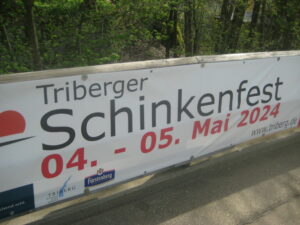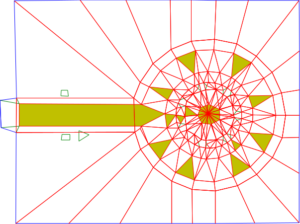As I hinted in my previous posts, I’ve decided to stop working on it. This post should serve as a conclusion, explaining my reasons behind it and mentioning some things about the engine I have not mentioned earlier.
The main factor is the diminishing returns with the rapidly increasing efforts required to get them. I.e. locating the code for loading and parsing different resource files was not so bad (even if a good deal of resources were not parsed immediately after loading but rather treated as some structure data and accessed during use, e.g. model or animation data at each render call). Figuring out the overall engine workflow was not so bad either even if took more time. But things related to 3D are hard because of their non-standard nature (more about it below) and Ghidra not decompiling x87 code correctly in all cases. And the in-world objects interactions are even worse as it is done in the conventional C++ object-oriented fashion (and some bits in less conventional Smalltalk object-oriented fashion) so figuring out what objects are implemented as which classes is not fun, let alone all those variable-length messages that may be sent by them (and handled by a different class).
So I looked at the amount of work before me (implementing GUI, which is easy; implementing 3D rendering stuff, which is too complicated; implementing hardcoded logic, which is too tedious—and that’s before you remember that rooms may also implement their own custom logic in DLL files) and decided that I can stop here as I’m not going to re-implement the engine in any usable form anyway.
Of course I could’ve advanced farther but my inability to make 3D rendering work. I mentioned in the post about room backgrounds how I did not get it exactly right because Ghidra sometimes fails to decompile x87 code introducing variables like extraout_ST1 and you have to guess its value yourself and sometimes outright lying by e.g. using multiplication instead of division—and the x87 code is annoying enough for me to translate it by hoof. Additionally I upgraded Ghidra to 11.0 in a foolish hope that it will improve things, but that was a mistake—not only it did not make any better decompilations for the concerned code but it also made things worse by forcing alignment on function arguments which was not done before (and considering how many functions mixed integers, pointers and doubles as their arguments, I had to correct annoyingly many function prototypes to put them in order again); additionally it changed some interfaces so LX loaders do not work with it yet (it is unrelated but still complicates thing for me; and that is why I’m not so eager to move to the latest version of the software I actively use). In theory spending a bit more time on maths I could get it right but model rendering proved out to be even worse.
I have next to no experience with 3D renderers, especially triangle-based (the books tend to describe ray-tracing approaches instead) yet it is not that hard even for me to understand: surface is split into triangles, each one is defined by its vertices, rotation is performed by multiplying those coordinates by rotation matrix (which is also easy to derive), then you do projection to plane and fill. I’ve managed to make a wireframe model of the object render and after messing with barycentric coordinates I could even make textures appear on some of them.
The problem is that QfG5 engine uses a different approach: normally projected coordinates would be calculated as x/(z/k+1) where k is the distance from the viewer to the projection plane. Inside the engine this +1 bit is missing (yes, I’ve checked the assembly to be sure) which gives unexpected results. What’s worse, even when I export model data into the standard Wavefront .obj format and use a third-party 3D viewer, it fails to apply the textures properly (and sometimes the polygons themselves look very wrong). So it looks like you have to use the engine code—and it hits the same decompilation problems as above (not as bad in this case but it’s still a mix of floating- and fixed-point code with many opportunities for the decompiler to lie).
As for the in-world logic, it does not help that almost everything is hardcoded in the engine. For instance, item IDs are hardcoded and there’s a special table with item properties which contains e.g. sound IDs for viewing or equipping/using the item and message ID3 which tells you which message you should load from 101.QGM e.g. message ID3=18 means that if you load message 1,18,1,1 you’ll get short item description “Basket” while loading message 1,18,5,1 will return “This simple reed basket looks old, but well-cared for.”. Messages with just one different ID are used in many places, e.g. to tell you that your action will fail because of enemy presence instead of e.g. hunger. But the worst of them is a per-character (hero, NPCs or enemies alike) collection of tables, both integer and floating-point ones, that are used for affecting some actions. I did not even bother to find out what they affect exactly.
Well, that’s it. I don’t know what I’ll do next, maybe some small things for NihAV, maybe I’ll look at other Sierra engines to see if they’re more accessible, maybe I’ll do nothing for a while (there are some strategy games that make me waste a lot of time like Battle for Wesnoth, OpenTTD or Settlers II). In either case I had some fun REing the game and learned some things too, I can only hope the next thing I do will be similarly entertaining (and somewhat useful).


